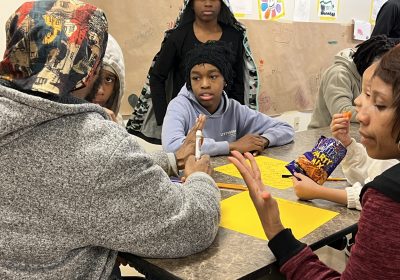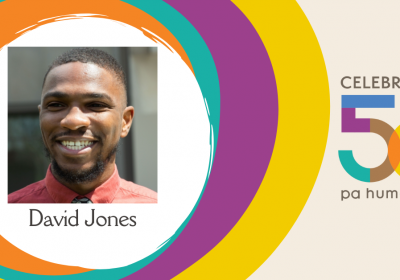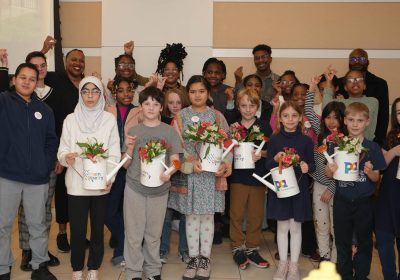By Karen Price
For all that the world has collectively been through recently, Trapeta B. Mayson found one theme rising above the rest as she read submissions to the PA Kindness Poem Project.
Hope.
Even in the midst of a global pandemic, a tumultuous time in politics, struggles for racial justice and deepening social divides, it became clear that people were still hopeful about kindness.
“I wanted to capture that and focus on that,” said Mayson, Philadelphia’s Poet Laureate. “People really do feel (hopeful), and I feel that way. I wanted to convey that.”
PA Humanities partnered with Mayson for the year-long PA Kindness Poem project and invited residents across the state to share their thoughts on generosity, healing, reconciliation and peace on social media. Mayson drew inspiration from those messages for her piece, “kindness lives here,” and PA Humanities debuted the poem on World Kindness Day 2021. A host of PA Humanities friends and partners from across the commonwealth also joined together to read the poem, and you can see that video here.
We spoke with Mayson about the project, her process and what she’ll remember most.
Q: What initially attracted you to the project?
A: What I liked about it the most was that it really aligned with the work I already do in my own life as an artist. There was a call out to the community and response aspect to it. I loved that it allowed the opportunity for a number of people to be involved, and that was the big thing. The part that really interested me was that yes, I got this assignment, but I was almost co-creating with all these people across the state. It was intriguing. It was challenging, but a challenge that I embraced. And I liked the fact that it centered on kindness.
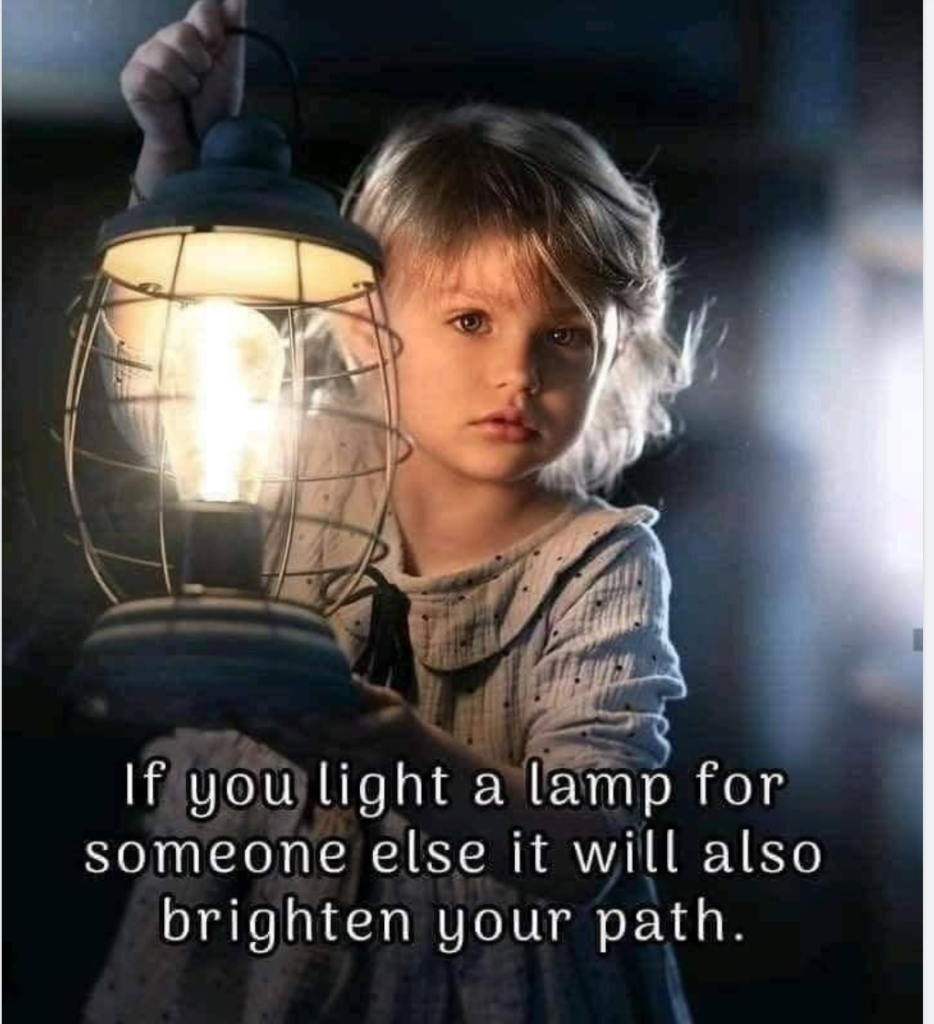
Q: What was it like to sift through the thoughts being shared by people from across Pennsylvania?
A: It felt like I was a fly on the wall hearing these people’s experiences and thinking about what they chose to share and what was important to them. I liked being involved in the process of understanding their thoughts. It made it feel authentic. I felt like it wasn’t just lip service, the way sometimes we say the community’s involved in a particular project but it really isn’t. And it was a very thoughtful process because as I read through, I was looking for themes. I had no intention of piecing together words to make a poem. That would have been impossible because of the number of submissions, and that’s not what I felt the project was about.
Q: What were the themes that started to emerge?
A: A number of people chose quotes that were more affirmations, whether they were famous quotes or other quotes talking about the importance of kindness. Some people chose to talk about how much the world needs kindness now and how important it was to them after the pandemic and the election and all the racial justice situations. Another group of people were able to highlight situations and scenarios where either they were kind to someone or someone was kind to them and those were all inspiring. The words that kept coming up for me were the words in the poem title, “kindness lives here.” The overall theme I was getting out of this was, it did not matter how dire the situation or how tough things are for us as a group, as a community, as a country, or globally, there was hope in those submissions. There was some degree of hope.
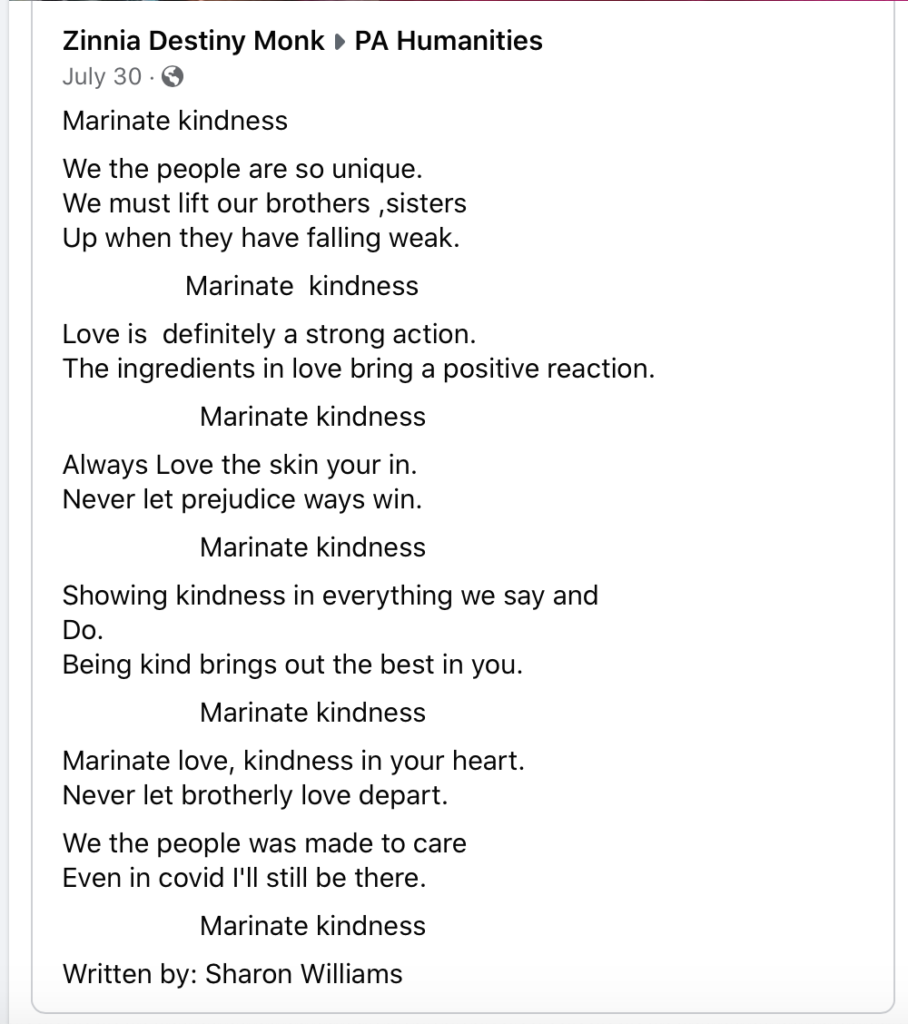
Q: How did this writing process differ from your usual process?
A: My usual process when I’m not doing commissioned work, or even when I am, is a very internal process. I’m very much just me writing, trying to get information out. Now in this process, it involved me thinking a little differently and in my head I kept thinking, ‘Here are my co-creators, they’ve given their ideas and they have expectations that they’ll be reflected in some way.’ But also part of my process is that what I’m writing really has to have meaning for me and focus on something I want to think about and write about. I had to bring both those to the table. Kindness is something I live and I want to be that person in the world, so that meshed well. But there was a little pressure. I wouldn’t say I was anxious, but I was concerned that I would capture it the right way and I wanted to make sure I was doing that. It took me a little while to read through and compile, and then I kept asking myself, ‘What is it that people in this state and community are trying to convey about kindness, and what do they really want to say?’ I didn’t want to capture what didn’t happen or doesn’t happen; there’s enough of that. I wanted to capture what happens when we need support and our neighbors, friends, and perfect strangers are able to help us and provide these things we need. That’s how I went into it.
Q: And what was the writing process?
A: I thought about the idea for months, then when I received all the submissions I read through them and kept trying to figure out what the first line was going to be. Is it going to be directly pulled from pieces, or will it be pulled from the sentiment, the feelings, of the people? I went with it being pulled from the feelings, inspired by the feelings. That’s how I was able to get the first line.
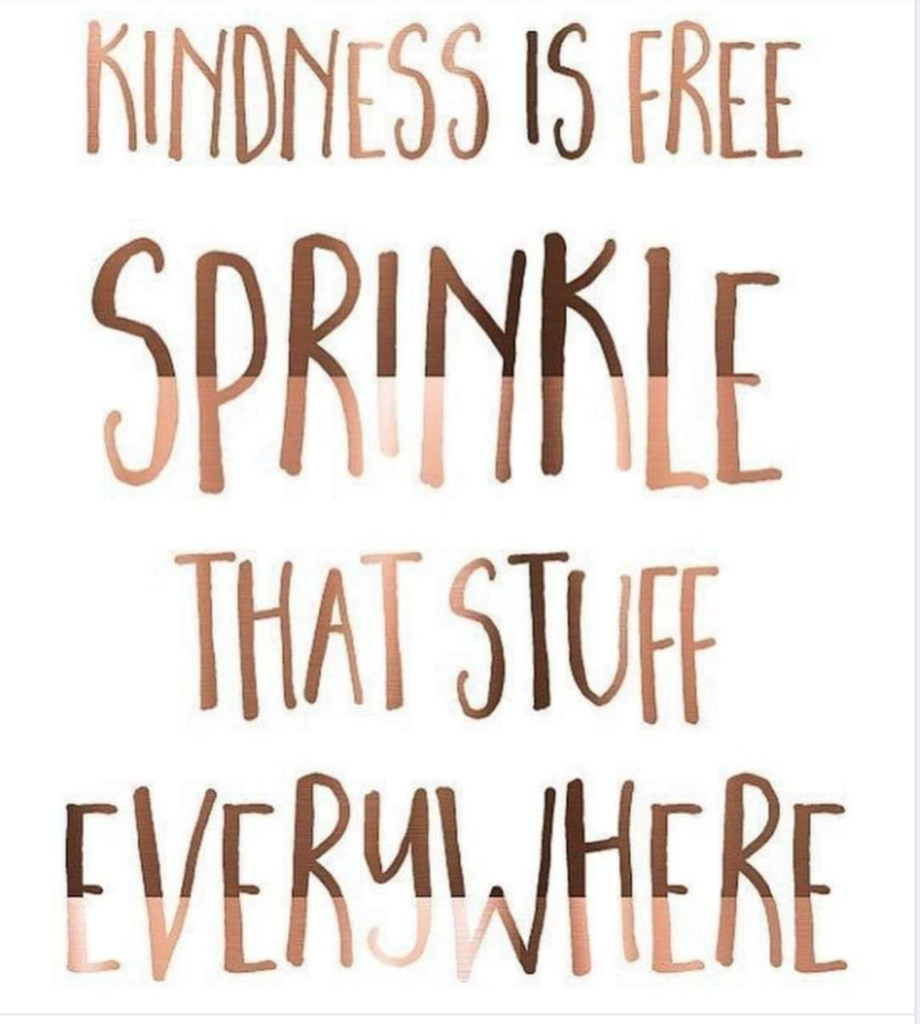
Q: So you had the first line and it blossomed from there?
A: I knew the first line was going to be the theme about kindness lives here, and then out of it comes how does it live here, in what ways, how are people experiencing it? Then I started thinking about the stories and things people shared. …. I intentionally didn’t want to capitalize anything and I intentionally did not have periods in any aspects of it. I don’t write all my poems that way, without punctuation and capital letters, but I wanted it to feel free. I wanted people to read it in the way they wanted and not feel forced to read it in a certain way because it had an exclamation point here or a period there. I wanted it to be lower case because I wanted to capture the essence of the poem; that it’s the small things, small acts, that make a big difference. But I didn’t know that until I started writing the poem … Then in the end, the confetti piece, I was just enamored with the idea that it’s a small thing that can have a big impact. Once you throw confetti in the air it goes everywhere and it could be under the couch or in a corner of a room and you’re like, ‘Hey, that’s where it went.’ It’s the idea of these little surprises that perfect strangers can add to your life.
Q: What will you remember most about this project?
A: I’m really grateful to PA Humanities and to (Senior Director of Content and Engagement Dawn Frisby Byers) for having the faith in me to do this, and what I’ll remember is the thoughtfulness of the organization in every aspect of the project. It might seem like such a simple thing to invite the public to share about kindness, but there was so much effort to get these different voices from across the state. Then the effort goes into getting it out there. I will remember just the process as an artist partnering with an organization in a way that is really the right way to do it.
“I wanted to capture what happens when we need support and our neighbors, friends, and perfect strangers are able to help us and provide these things we need.”
– Trapeta B. Mayson
About Trapeta B. Mayson:
Trapeta B. Mayson is the city of Philadelphia 2020-2021 Poet Laureate. She reads her poetry widely and works extensively facilitating poetry and creative writing workshops. Her work sheds light on and honors the immigrant experience as well as amplifies the stories of everyday people. She is a recipient of a Pew Fellowship in Literature, Leeway Transformation Award, Leeway Art and Change Grant and Pennsylvania Council on the Arts Grants. Her work was also nominated for a 2016 Pushcart Prize. She is a Cave Canem and Callaloo Fellow and a 2019 Aspen Words Emerging Writer’s Fellow with the Aspen Institute. She is the author of She Was Once Herself and Mocha Melodies. A native of Liberia, Mayson currently resides in Philadelphia. For more information visit her website, https://trapetamayson.com/.
Read “kindness lives here” and learn more about the project here.
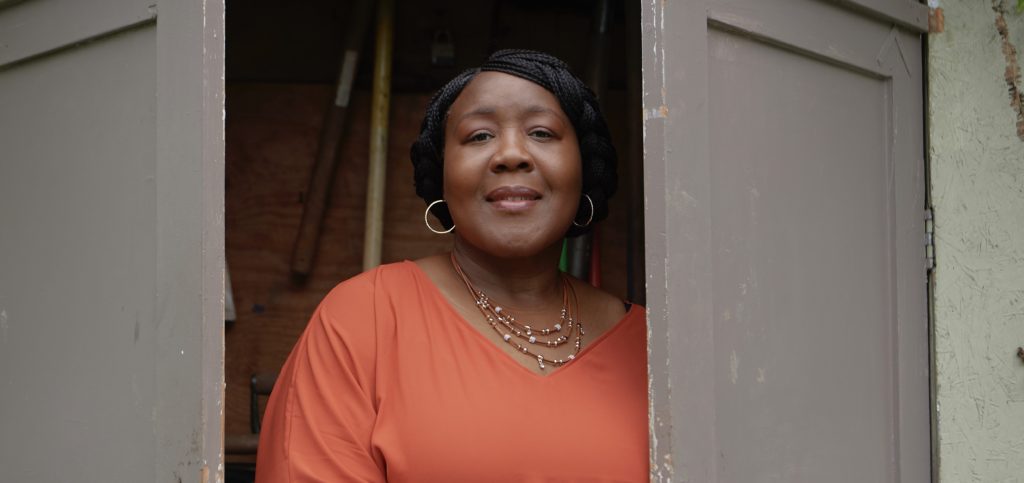
![[color – dark bg] PA SHARP FINAL FILES DB 72dpi [color - dark bg] PA SHARP FINAL FILES DB 72dpi](https://pahumanities.org/uploads/files/elementor/thumbs/color-dark-bg-PA-SHARP-FINAL-FILES-DB-72dpi-phgl7aimtfdpzt2rscvl43ksfv3asbbls19lsvuacw.jpg)
